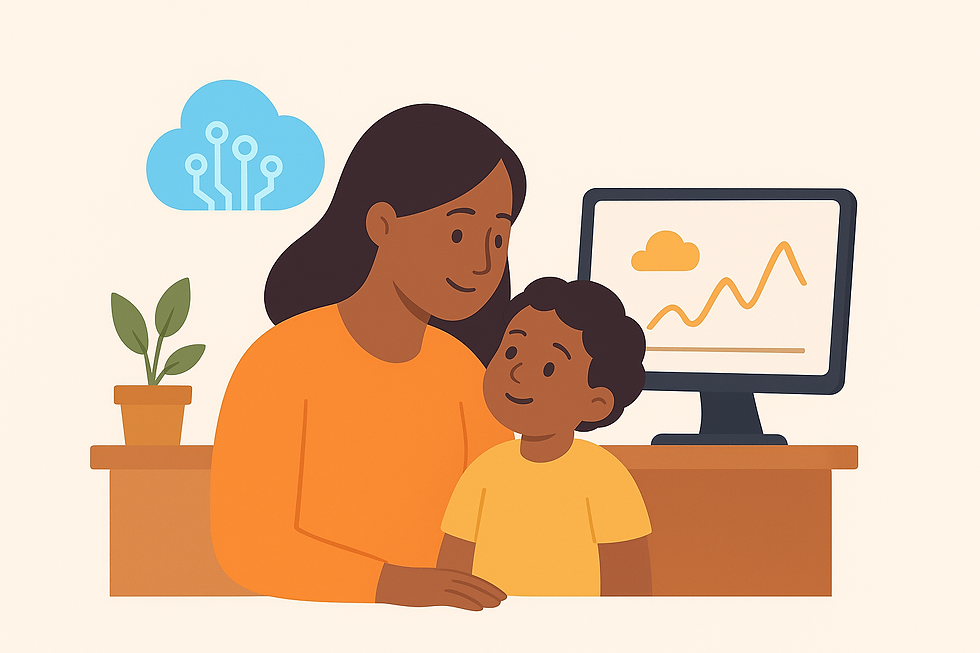Increasing Crop Yield in Developing World with MI, AI Regulations and MI for Clean Cities
- springerpaul4
- Nov 22, 2021
- 4 min read
Updated: Nov 23, 2021

Dear friends,
Presently, nearly 10% of the world’s population suffers from severe food insecurity, and this situation is becoming even worse since earth population is constantly growing. Thus, we currently face an extremely urgent and complex challenge of creating sustainable and scalable food supply chains, especially in developing world.
One of the key components to master this challenge is to increase the crop yield. To do so, farmers must have detailed knowledge about the properties of their soil to be able to make better decisions regarding fertilization and the crop to be planted. Unfortunately, the common tool to get this information – chemical lab tests – are expensive and, therefore, often inaccessible to farmers in developing countries.
MI4Peole aims to help to solve this problem with its first project that was recently kicked off. In the next six months, our volunteers Kira Klimt, Adil El Mesaoudi-Paul, and Paul Springer will perform applied research on and technical feasibility study of a system that uses various satellite imagery and MI technologies in order to predict the most important soil quality indicators. This work will lay the foundation for the development of the actual MI4People’s system that will make soil quality knowledge accessible und understandable for farmers, especially in the developing countries, and will enable them to better understand their soil, make intelligent choices about which crops to plant, how to best fertilize and protect soil from pests in a more suitable, sustainable, and environmental-friendly manner.
MI4People gives large thanks to all our volunteers for their exceptional dedication and great commitment!
For more detailed information on this project check out our website: https://www.mi4people.org/soil-quality-evaluation-system
Wish our volunteers a good luck on their journey!
Together, we can build a better world, for all of us!
Your MI4People Team
News
From Politics
The White House Office of Science and Technology Policy is aiming to create a set of rules that will protect U.S. citizens against AI-powered discrimination, surveillance, and other harms. To find the best way to do so, they recently published a call for public comment on how to regulate AI-based systems like face recognition, systems for evaluation and monitoring of (potential) employees, and attention and risk monitoring systems in classrooms.
Roughly at the same time, the European Parliament issued a non-binding ban on usage of face recognition and predictive algorithms by police and law enforcement (with some exceptions for very serious crimes like terrorism and sexual abuse of children).
China is also working on its plans for regulation of MI technologies and announced forthcoming rules to limit the influence of recommendation algorithms.
Looking through a lens of MI for Public Good: While currently politics is speaking rather about call for comments and non-binding bans than about actual regulations, it becomes clear that MI, and especially AI, technologies are strong focus areas of governments of the major economies and will be probably quite strongly regulated in the near future. In general, it is a good development since regulations can increase the trust in technology by public at-large and ensure that MI technologies do not harm humanity. However, one should also be careful and focus rather on regulation of specific use cases than on regulation of specific technologies, in general. Otherwise, the application of the same technologies for Public Good might become impossible. Regulators should keep this in mind in their forthcoming work.
From Healthcare
UK Secretary of State for Health and Social Care, Sajid Javid, has given the green light to a series of MI-based projects that aim to tackle racial inequalities in the National Health Service.
These projects range from creating fresh standards for health data inclusivity aiming at adequate representation of people from ethnic minority backgrounds to development of AI-based systems that should improve and tailor existing treatments to the needs of ethnic minorities.
Javid said: “Technology, particularly AI, can be an incredible force for good. It can save valuable clinician time and help provide faster, more accurate diagnosis, so patients can access the care they need as quickly as possible. It can also help us better understand racial differences so we can train our workforce to look for different symptoms or complicating factors, diagnose faster, and tailor treatments.”
Looking through a lens of MI for Public Good: In the recent years a lot of public attention was drawn by AI-based systems that were obviously racist and/or misogynic (usually because the training data for such systems were representing existing systematic racism and misogyny). The UK initiative demonstrates that the same technologies can fight inequality and foster inclusion if they are applied wisely. This is a good example of the well-known fact that technology by itself is neutral, it is the humans who are in power to apply technology either for good or for bad. This insight is especially important when dealing with such powerful technologies like Machine Intelligence.
From Social Entrepreneurship
An Indian Startup Kabadiwalla Connect is piloting IoT- and AI-based solutions to connect Indian’s informal urban waste pickers with recycling facilities. Supported by Shell’s GameChanger program, the decentralized solution from Kabadiwalla Connect aims to integrate informal waste collectors functioning into the formal economy, enable smart waste pick-ups, and leverage the work of waste pickers to effectively help solve post-consumer waste problem in expanding Indian cities while at the same time improving the livelihoods of the waste pickers and contributing to environment protection.
Looking through a lens of MI for Public Good: Kabadiwalla Connect solution is a great example of how MI technologies can be wrapped into a commercial product that is aiming to deliver Public Good. At MI4People, we believe that the world needs more such initiatives, both in non-profit and commercial sector, and wish Kabadiwalla Connect all the best on their journey!



Comments